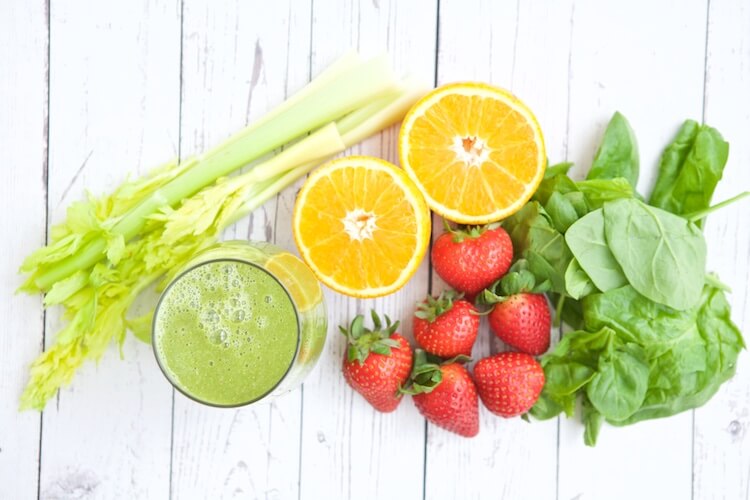As a person ages, his body’s needs change, health conditions often arise, and more supplemental vitamins are often needed to maintain overall health. Therefore, if you are a senior, make sure you get these essential vitamins in your diet daily.
Vitamin A
Vitamin A works to keep the eyes, skin, hair, and nails healthy, and slows down the following natural effects of aging which seniors often experience: Vision difficulties, wrinkling of the skin, brittle nails, and hair loss.
Vitamin A works in the body to promote the health of all these organs and more. Also, vitamin A helps the immune system function by maintaining and repairing tissues and organs. Many seniors find they get sick more frequently than they did in their younger years, due to a weakened immune system. Supporting your immune system by increasing vitamin A intake helps ward off sickness. Some ways to improve your vitamin A status is to include foods rich in beta carotene in your diet. The body converts beta carotene to vitamin A as it is needed.
Vegetables
- Broccoli – Eat raw or cooked.
- Butternut squash – Steam or bake it.
- Carrots – Try drinking carrot juice daily!
- Kale – Eat raw in a salad or add to soup.
- Papaya – Add to a smoothie.
- Pumpkin – Add canned pumpkin to your favorite muffin or pancake recipes.
- Spinach – Eat raw in a smoothie or salad.
- Sweet potatoes – Microwave them and add butter or coconut oil.
Fruits
- Apricot – Eat dried or fresh ones as a snack.
- Cantaloupe – Eat by itself or add to a smoothie.
- Mango – Make a tropical smoothie.
Calcium
As we age, we absorb less and less calcium from our foods, which forces our bodies to take it from our bones. This is one of the reasons why the aging process can contribute to the development of osteoporosis. This is especially important for older women, as they tend to have smaller, thinner bones than men.
Calcium helps more than just our bones. The heart and nerves need calcium to function properly. Calcium also may protect against cancer, diabetes, and high blood pressure (when combined with vitamin D). Although animal products are rich in calcium, eating a lot of dairy products does not necessarily protect from osteoporosis and hip fractures. Also, population studies have not shown a benefit of eating dairy products for protection from bone fractures. Some plant foods to consume to obtain calcium are:
Fruits
- Figs – Eat as a snack.
- Oranges – Eat them and grate their peels into baked goods.
Vegetables
- Broccoli – Microwave or steam it.
- Bok Choy – Sauté or bake it.
- Kale and collard greens – Sauté them.
- Okra – Bake them or add to stew and soups.
- Arugula – Use as the base of a salad.
Other Calcium-Rich Products
- Black beans, chick peas and Great Northern beans—use in soups and burritos.
- Chia seeds – blend into a smoothie.
- Alternative milk (almond, soy, rice, hemp) – Use anywhere you would use milk.
- Almonds – Eat as a snack or on a salad.
- Almond butter – Spread on toast.
- Calcium-fortified juice – Drink with your meals.
- Tahini – Use in a salad dressing, or in hummus.
- Hummus – Both sesame seeds and chickpeas are good sources; eat with vegetables.
Vitamin D3 and K2 are excellent supplements when additional calcium is necessary.
Vitamin D
Vitamin D works together with calcium to promote calcium absorption. Low levels of vitamin D are also linked to depression, so be sure to get plenty of vitamin D daily! Adding a 10-30 minute walk daily in the sunshine can help you get enough vitamin D, or you can take Vitamin D supplements for the same effect.
Vitamin D is a fat-soluble vitamin, meaning that the body absorbs it better when taken with a meal that contains fats. Be sure to include healthy fats in your meals, such as nuts, nut butter, seeds and avocados. If using vitamin D3 supplements, take them with a meal with highest fat content or when supplementing your omega 3s.
Vitamin B12
Vitamin B12 plays a crucial role in supporting the healthy development of the brain and nervous system. It also helps to regulate DNA and assists with the metabolism processes in our body. Like most vitamins, as you age your ability to absorb vitamin B12 declines, so you want to ensure you are getting enough. Consider taking a vitamin B12 (methylcobalamin form) supplement unless you know your B12 status is good.
Iron
Older adults may not consume enough iron in their diets, which is dangerous because iron helps transport oxygen throughout your body. If your body doesn’t get enough iron, then you will lack enough healthy oxygen-carrying red blood cells. Luckily, iron is in a variety of foods:
- Oatmeal – Add strawberries, blueberries, or bananas.
- Molasses – Add a drizzle to your oatmeal.
- Dried fruit (apricots, raisins) – Add to your morning oatmeal.
- Fortified breakfast cereals – Enjoy with the milk of your choice
- Lentils – Make as a side dish or add to a salad.
- Tomato sauce – Enjoy it on pasta or pizza.
- Lima beans – Cook as a side dish.
Omega-3 Fatty Acids
Brain health is important for all, and seniors are no exception. By including enough Omega-3-rich foods in your diet each week, you will help prevent mental decline as you age. Omega-3s are important for many reasons, including eye and heart health, as well as your skin, bone, and joint health. Sources of this nutrient include:
- Chia seeds – Sprinkle into your yogurt or add to baked goods. If you grind them, they don’t stick to your teeth!
- Fish oil or a DHA supplement.
- Flax seeds – Grind them and add to your morning oatmeal.
- Walnuts – Eat them raw or very lightly roasted for a great omega 3 boost.
By incorporating these vitamins into your diet through a variety of foods and supplements, you will help your body age with grace.



